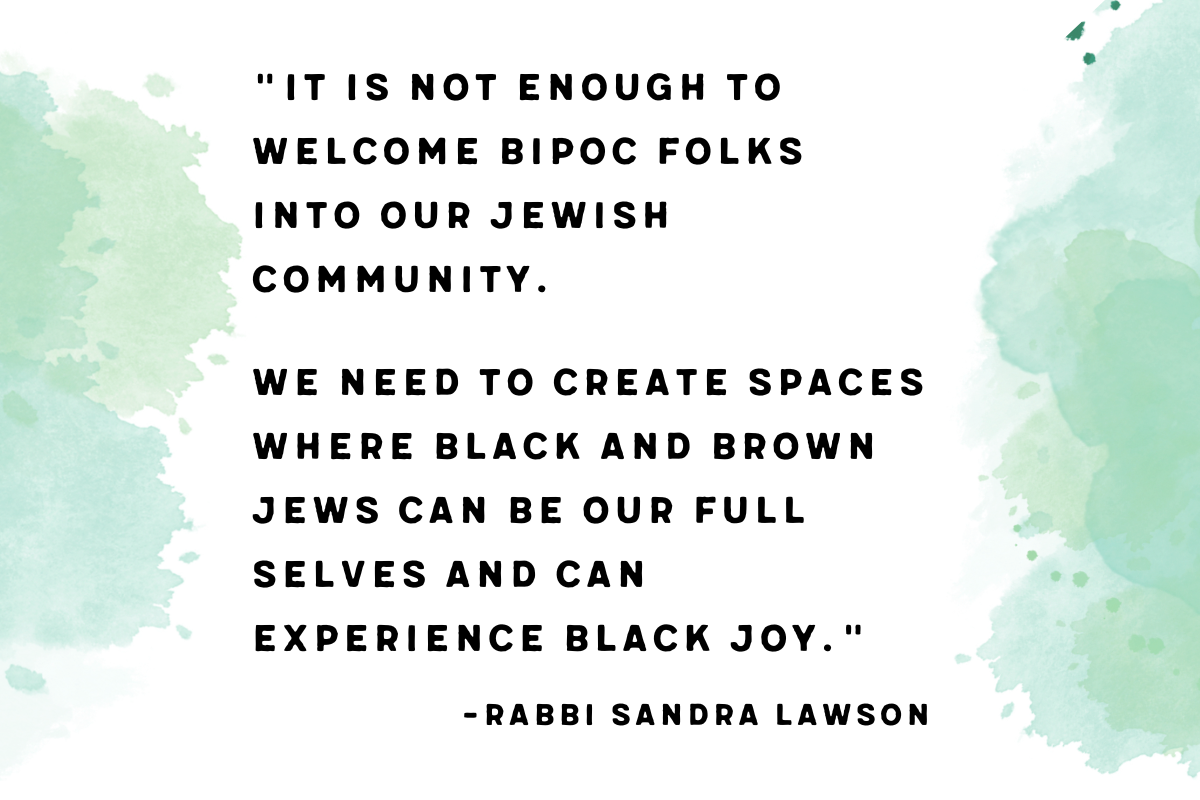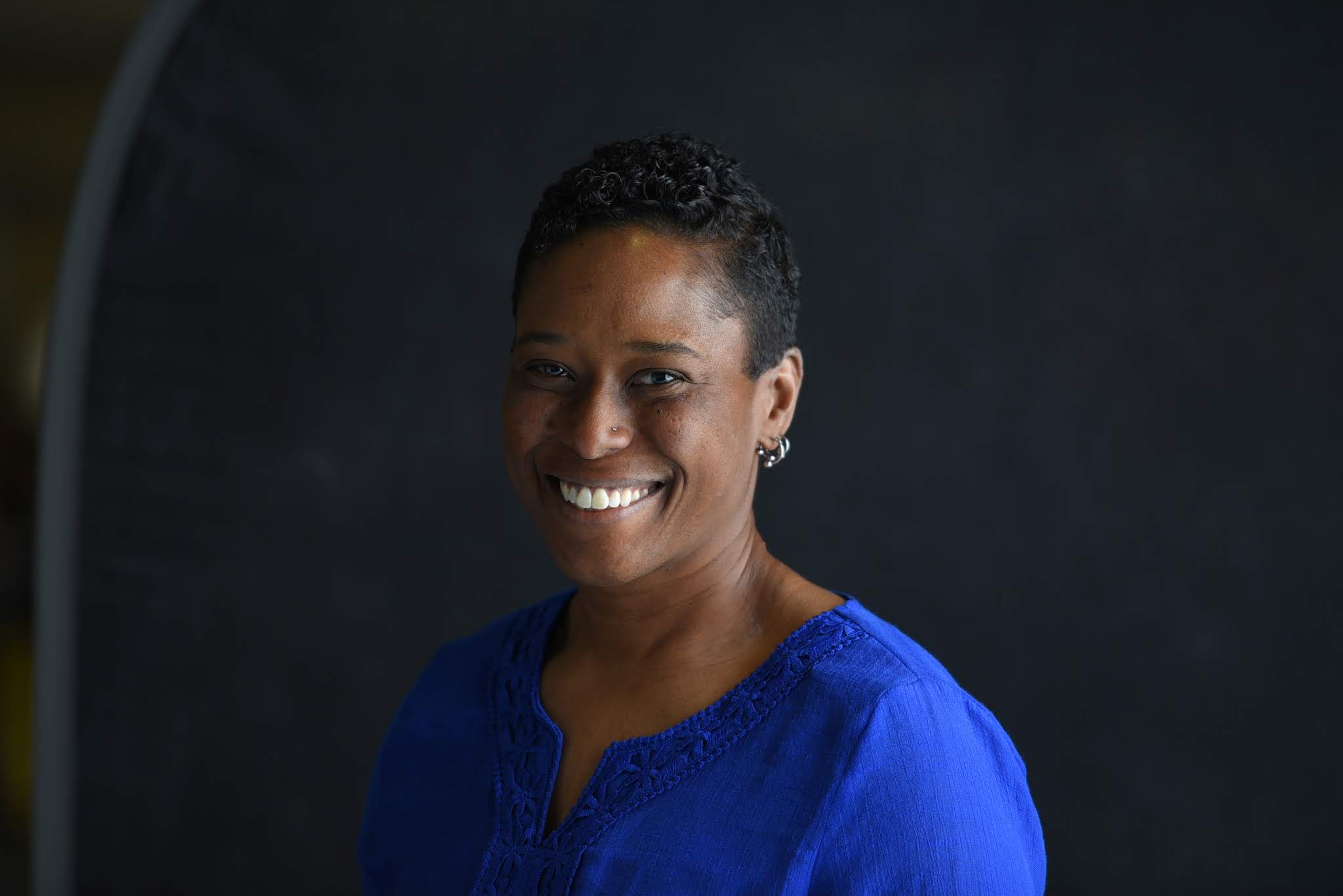There is a wonderful viral trend on TikTok of Black men frolicking in the fields. This trend, which can come across as light-hearted, demonstrates something deeply precious: Black Joy. This example of Black Joy highlights Black men being joyful, playful, having fun, and feeling free to be themselves. Why is this trend so awesome? Because we live in a society that continues to paint Black men as scary, so we seldom get to see images of Black men feeling joy and having fun. And we rarely get the opportunity to witness Black men feeling safe enough to do so. My work at Reconstructing Judaism strives not only to dismantle systems of oppression within our movement, but to create spaces for Black joy within our communities. We need the support of allies and partners to make this vision a reality.
In a recent episode of our podcast Hashivenu, my friend Shahanna McKinney-Baldon reminded us that when we focus on resilience and race, we hyper-focus on grit, which problematizes the people instead of the oppression. Too often, we lose sight of the fact that racism is not a problem of Black people; the problem is the oppression of Black people and other people of color.
When I talk about race to members of the Jewish community, they frequently ask or expect me to discuss the pain of racism in Jewish spaces and the United States —and to tell inspiring stories of Black resilience. In our conversation on Hashivenu, Shahanna and I focused on Black joy: the joy that comes from being able to talk with other Black Jews who understand what it means to be a racial minority in Jewish spaces and in the United States and the joy that comes from feeling comfortable enough to be ourselves.
As a Black Jew, I understand that Jews of color often do not have opportunities to be fully ourselves in Jewish spaces. When we walk into a community for the first time or maybe after multiple times, many white Jews still treat us as if we are strangers. Many BIPOC Jews are navigating many things at once upon entering Jewish spaces, whether for the first or the 100th time. One of those things is “how will they treat me today?” We continue to face microaggressions and just plain old racism in Jewish spaces. When this happens, we must choose whether or not to call a person in to let them know they said or did something harmful that has caused us to feel as if we do not belong. On Shabbat, I often choose not to address microaggressions because I am prioritizing prayer and being in community over any racism I am experiencing. But these experiences also mean that I may not be building friendships and close relationships with people in my Jewish community. Building relationships means choosing to have some very hard conversations with white people and telling the truth about my experiences in Jewish spaces. Many Jews of color ultimately choose to leave our Jewish community or opt-out of the Jewish experience out of exhaustion. We are tired of white Jews feeling entitled and expecting us to explain our existence and our right to be in our own community.
A few years ago, I talked to a Black Jewish activist who was worn out. She loved her rabbi and had been a member of her synagogue for years, but she was exhausted. She told me “I am tired of white people treating me like I am new and this is not my community.” She was tired of the constant questions from white people in the community wanting to know her Jewish story and how long she had been Jewish. She had been an active member for years, but all these questions piled up and pushed her away so much that she left the community.
It is not enough to welcome BIPOC folks into our Jewish community. We need to create spaces where Black and brown Jews can be our full selves and can experience Black joy. When we experience the fullness of a human and look beyond their race, we experience that holy Divine spark that is in each of us, and we make our community a better place for all people. That is why, again, I am asking you to join me in this work. Please consider a gift towards Reconstructing Judaism’s racial justice advocacy. Your contribution will ensure we can continue to make our rabbinical school a place of Black Joy, where our BIPOC students thrive. Your gift will also support our communities in cultivating these spaces of deepest diversity and belonging. I cannot do this work without partners like you. Thank you for your consideration.









